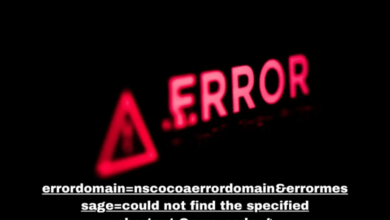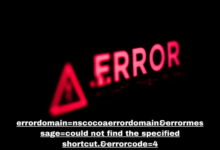Understanding the “Drive Social Media Pyramid Scheme” Allegations: A Comprehensive Analysis

Introduction to the Drive Social Media Pyramid Scheme Controversy
In today’s digital age, social media marketing firms play a pivotal role in helping businesses grow their online presence. One such company, Drive Social Media, has garnered significant attention—both positive and negative. While the firm is known for providing innovative marketing solutions, it has also been surrounded by controversy. The term “Drive Social Media pyramid scheme” has begun to surface across various online forums, complaint boards, and social networks, prompting many to ask: Is there any truth to this claim?
This article aims to dissect these allegations, explore what constitutes a pyramid scheme, examine the business model of Drive Social Media, and ultimately help readers form an informed opinion.
What is a Pyramid Scheme?
Before delving into the Drive Social Media pyramid scheme controversy, it’s important to understand what a pyramid scheme actually is.
A pyramid scheme is an illegal investment scam based on a hierarchical setup. New recruits are promised high returns if they bring in more participants. The model relies on a continuous inflow of new members to pay returns to earlier investors. Eventually, the model collapses because it becomes impossible to recruit enough new members.
Key characteristics of pyramid schemes:
- Emphasis on recruitment over product sales.
- Promises of unrealistic profits.
- Payments or commissions tied mainly to recruitment.
- A lack of legitimate, marketable goods or services.
If a company’s business model aligns with these elements, it could fall under the legal definition of a pyramid scheme.
Background on Drive Social Media
Founded in 2012, Drive Social Media presents itself as a data-driven marketing agency aimed at delivering ROI-based results for clients. Headquartered in St. Louis, Missouri, with additional offices in Nashville and other cities, the company offers services such as:
- Social media advertising
- Branding and design
- Conversion tracking
- Customer acquisition strategies
The firm has worked with businesses across various industries and has reportedly contributed to increasing client revenue through social media campaigns.
However, while the company has many loyal clients and employees who speak highly of its methods, it has also received criticism—particularly from former employees and anonymous reviews on platforms like Glassdoor and Reddit.
Dissecting the Drive Social Media Pyramid Scheme Allegations
The phrase “Drive Social Media pyramid scheme” has become somewhat viral. Critics allege that the company:
- Prioritizes aggressive recruitment.
- Offers commissions or promotions based on bringing new clients or employees onboard.
- Creates a “hustle culture” that mirrors multi-level marketing (MLM) models.
Let’s break down these claims.
1. Employee Recruitment Over Marketing Results
Some former employees claim that the company places excessive focus on bringing in new clients without always delivering the promised value. If true, this could reflect a structure where recruitment becomes more important than service delivery—a classic red flag for pyramid schemes.
2. Sales-Driven Commissions
The commission-based compensation structure has also come under scrutiny. Critics argue that earnings are often more tied to upselling or onboarding new businesses than the long-term success of marketing campaigns. This element can be misleading to recruits if they’re led to believe they’re joining a marketing firm but are instead becoming part of a recruitment funnel.
3. High Turnover Rates
Many online reviews mention extremely high turnover. Allegedly, employees are burned out by demanding sales goals and leave within months. High turnover is often a symptom of an unsustainable business model where workers aren’t seeing promised benefits.
Differentiating Aggressive Sales from a Pyramid Scheme
To be clear, Drive Social Media has not been legally charged or confirmed to be operating a pyramid scheme by any regulatory body such as the Federal Trade Commission (FTC). It’s vital to distinguish aggressive or questionable sales practices from illegal pyramid activities.
Some companies employ commission-based structures that may appear similar to pyramid schemes but are legal and widely accepted in sales industries. For example:
- Real estate agents earn commissions from sales.
- Affiliate marketers receive income based on performance.
The problem arises when recruitment becomes the only or primary source of income—something not legally documented in Drive Social Media’s model.

Employee and Client Experiences with Drive Social Media
Positive reviews:
- Some employees praise the fast-paced environment as a good learning experience.
- Clients have shared case studies showing improved social media performance.
- The company invests in training and offers merit-based promotions.
Negative reviews:
- Several Glassdoor reviews accuse the company of fostering a toxic, high-pressure sales culture.
- Others mention unpaid overtime, lack of transparency, and low base salaries.
- Some clients express dissatisfaction with campaign results, saying they didn’t get what they paid for.
It’s important to view these reviews in context. Every business—especially in competitive sales and marketing sectors—will have mixed feedback.
Legal Implications: Could Drive Social Media Be Investigated?
The FTC and other regulatory bodies investigate companies if they believe consumers or employees are being defrauded. As of now:
- There is no public record of an active investigation against Drive Social Media.
- No lawsuits have proven the company is a pyramid scheme.
However, the mere presence of widespread allegations can damage a company’s reputation, even without legal proof. Consumers and job seekers are becoming increasingly cautious, especially in the wake of numerous MLM and crypto scam revelations in recent years.
Red Flags to Watch For in Any Business Opportunity
Whether or not the Drive Social Media pyramid scheme allegations are valid, consumers and job seekers should always look out for the following:
- Pressure to recruit new members or clients without emphasis on actual product quality.
- Upfront costs for joining or getting started.
- Lack of training or mentorship beyond selling and recruiting.
- Promises of quick riches without effort.
- Incoherent or misleading compensation plans.
If you encounter any of these signs, proceed with caution.
Drive Social Media’s Response to Allegations
As of the time of this article, Drive Social Media has not issued a public statement directly addressing the pyramid scheme accusations. However, they continue to operate and promote their services, offering webinars, case studies, and results-driven testimonials on their official platforms.
Companies under scrutiny often use transparency and performance data to refute such claims. If Drive Social Media is serious about combating this narrative, proactive communication and third-party audits could help.
Conclusion: Is Drive Social Media a Pyramid Scheme?
After evaluating the available evidence, it would be inaccurate to definitively label Drive Social Media as a pyramid scheme without legal backing or formal investigation results. However, the “Drive Social Media pyramid scheme” keyword reflects growing public skepticism about its business practices—especially its sales-driven culture and alleged recruitment tactics.
If you’re a potential client or employee:
- Do your own research.
- Ask tough questions during interviews or consultations.
- Read contract fine print carefully.
In the competitive world of digital marketing, transparency, ethical practices, and value delivery are what separate sustainable businesses from exploitative ones. Allegations like these—true or not—underscore the importance of accountability in a rapidly evolving industry.







